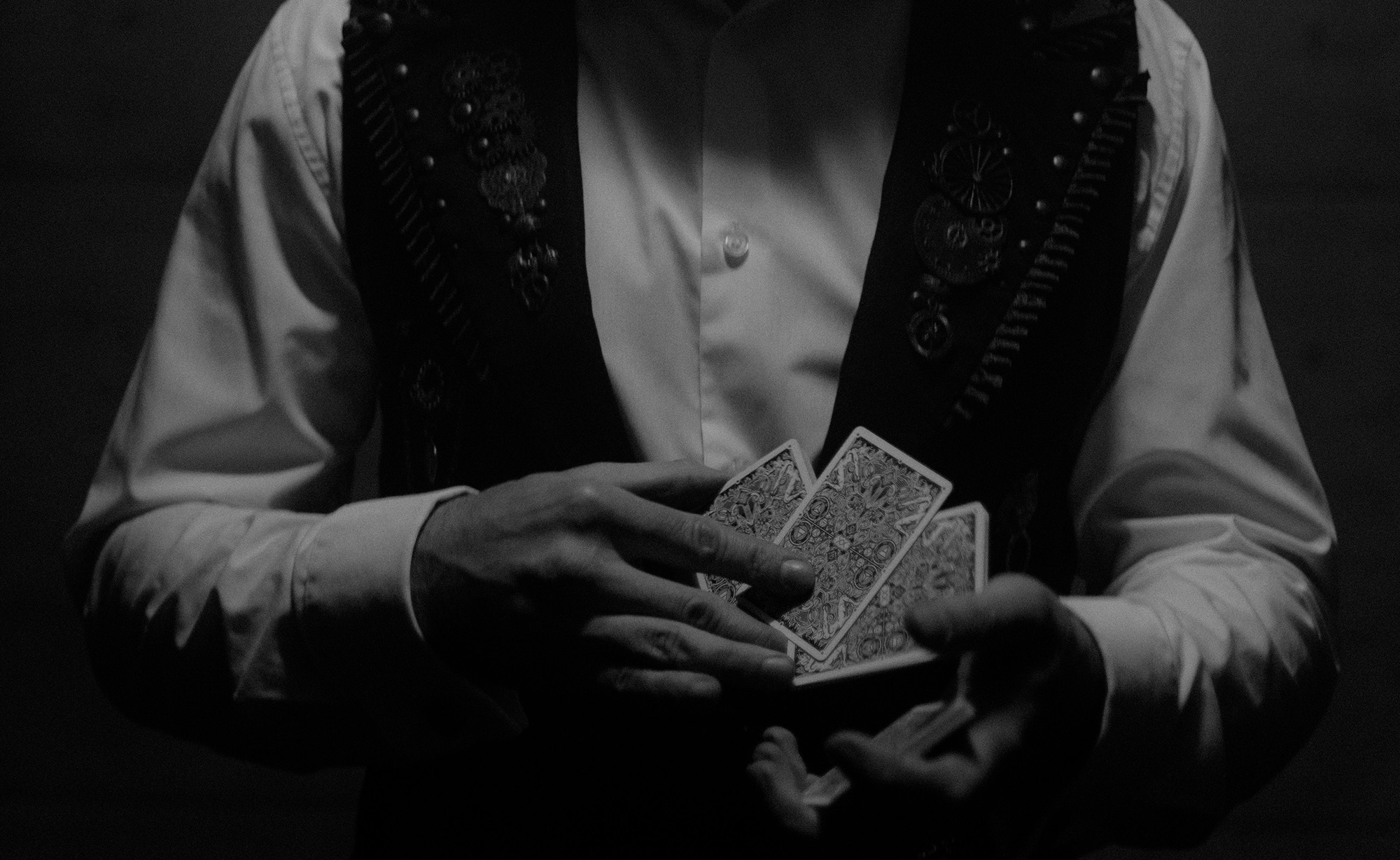








Have you ever seen a magic show? Perhaps you’ve seen one live on stage, or you’ve come across a street magician. And have you ever met someone who can read minds like they really have psychic powers?
Both of these people are performance artists. They are highly skilled in the art of entertainment, and know exactly how to capture the imaginations of their audience.
Many people don’t know the difference between a magician and a mentalist, and tend to use these two terms interchangeably. So, what exactly is a magician – and who can be considered a mentalist? We know that there are differences between the two, but what are they?
Read on to find out more, and to gain a better understanding of the difference between a magician and a mentalist.
The main difference between a mentalist and a magician lies in the type of tricks they perform. Magicians tend to create illusions that are physically impossible to accomplish. For example, they might saw a person in half and put them back together, cause a human body to levitate, or make something disappear into thin air.
On the other hand, a mentalist’s skill lies in making his audience believe that he has psychic powers and can read minds effortlessly. The nuances of their act rely upon their ability to observe and convince the audience, so the ending result of their performance can vary depending on who they are performing for.
A magician’s tricks focus more on misdirection and sleight of hand. However, many artists choose to use a combination of mentalism and magic in their acts.
A magician’s performance tends to be more theatric than that of a mentalist. Most magicians also rely heavily on props, costumes and drama for their acts – especially when performing on a large stage.
In contrast, a mentalist rarely needs many props for their acts. For the mentalist, interacting with their audience and creating a narrative is more important to the success of their performance. When a mentalist performs for a group of people, they are left wondering whether they do actually have psychic powers. At the very least, they will feel confused about how the mentalist could have possibly known what they were thinking.
Another key difference between a mentalist and a magician lies in the type of reactions they garner from their audience.
The vast majority of people are well aware that magic tricks are illusions. They may try to figure out how the trick was done. Perhaps there was a maths calculation involved, or the bending of the spoon was easy because the spoon is a prop. These are some of the thoughts that might be running through your mind when you watch a magician perform a trick.
However, a mentalist’s performance can be very difficult to figure out. It seems almost impossible to put someone into a state of hypnosis, or inexplicably know the exact number they were thinking of. By the end of the act, you may find yourself wondering if telepathy is a real skill – because how else could the act be possible without it?
After watching a magic show, more curious minds may try to learn a few magic tricks for themselves. Maybe a card trick here, or a simple levitation trick there. Many magic tricks are classics that have been around for years – and we may even have an idea of how they are performed. However, the subtle nature of a mentalist’s act makes it much more difficult to figure out.
While both acts are awe-inspiring, mentalism is shrouded in mystery which will leave you scratching your head and thinking about the performance for hours afterwards.
Both mentalists and magicians are master illusionists. The difference between them depends on the kind of illusion they are using.
A magician will often use props and other items brought to the stage to create their illusion. They make heavy use of misdirection in order to do this. Sometimes, if you pay close enough attention, you can determine the item that is being used to misdirect the audience. However, it will almost certainly be more difficult to ascertain exactly how the illusion was created.
Magicians also use sleight of hand, which is a skill that takes a long time to master. When a magician makes a card disappear or appear out of thin air, this is an example of them using their sleight of hand skills.
On the other hand, mentalists are more reliant on human psychology for the creation of their illusions. Psychology is one of the core principles of mentalism. Mentalists need to know how to create the right atmosphere, build up the correct amount of tension, read facial expressions and body language, manipulate your train of thought, and so on.
Anybody can learn about body language and psychology, but knowing it inside-out is the only way you can create perfect illusions that look like actual psychic abilities.
Mentalists and magicians are both incredible performers who have spent years honing their skills and perfecting their craft. They are both master artists that know how to keep an audience entertained and engaged.
Although this is not always the case, magicians can be mentalists – and vice versa. If you are planning to hire a performer for your event, why not have the best of both worlds and choose someone who is well-versed in mentalism and magic.
Chris Fleming is an international performer who blends Dynamo style magic with Derren Brown style mind reading. Based in London, he has provided world class entertainment for the likes of Disney, Kanye West, and Channel 4.
For the perfect mix of magician and mind reader, look no further than Chris. Contact him today to see how he can bring an extra special sparkle to your wedding, private party or corporate event.
…..
Now that you know the difference between a magician and a mentalist, here’s how to choose which one to pick for your event.
If you’re looking to entertain many people at once, consider booking a magician for your birthday party, private party or work Christmas party. On the other hand, if you’d like to provide an icebreaker for small groups of people within a larger setting, consider booking a mentalist or a corporate mind reader for your networking event. And if you’re looking for unique wedding entertainment, Chris Fleming offers a wedding emcee service that will keep your big day running smoothly and entertain your guests at the same time.
Enquiries:
chris@chrisflemingmagic.com / +44 (0) 7795 663 888
Get in touch to take your event to the next level